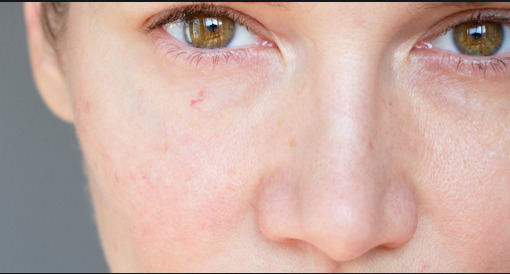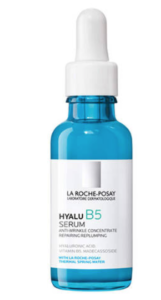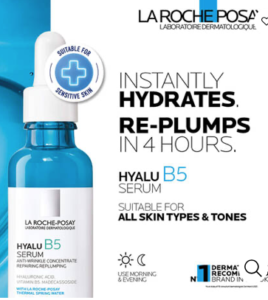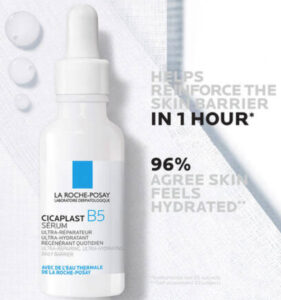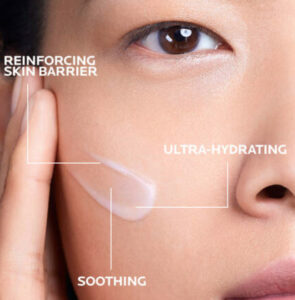The Skin Barrier works as a protective shield, defending the body against pollution, chemicals, UV radiation, and other environmental aggressors. It also helps maintain the skin’s natural moisture and prevent moisture loss. In short, the Skin Barrier must be healthy and intact for your skin to operate at its best and look and feel hydrated, smooth, and healthy.
Many of us have experienced red and itchy skin due to the excessive use of active ingredients or perhaps due to a shift towards a more intuitive approach to our skincare routine.
Whatever the reason may be, the importance of maintaining a healthy skin barrier is being recognized, with well over 100 million views on the search term “skin barrier repair” on social media sites and an increase in Google searches for “how to repair the skin barrier” in the past month. This trend is a positive development, and may it continue.
Understanding Your Skin Barrier
In dermatology, the outermost layer of our skin is referred to as the epidermis. Either intrinsic or extrinsic factors, or a combination, can disrupt this skin barrier. Intrinsic factors include skin barrier diseases that are genetically inherited, such as eczema and ichthyosis, as well as high levels of stress and illness.
Extrinsic factors that can affect the skin include exposure to harsh weather conditions like excessive sun, wind, or sudden temperature changes. During winter, compromised skin barriers often appear due to sudden exposure to cold weather from heated rooms. Exposure to chemical irritants like active skincare ingredients such as AHAs, retinoids, or soaps containing SLS can irritate the skin. Other factors like pollution, allergens, poor sleep, and smoking can also affect the skin.
Skin barrier aggressors are present all around us, but the most prevalent reason for damage is the excessive use of active ingredients and multiple products at once. When the skin is overloaded, it becomes overwhelmed; consequently, the barrier becomes compromised.
Signs of Skin Barrier Impairment
If you find it difficult to retain moisture in your skin and feel dry and tight, it may be a sign that your skin barrier is impaired. After applying any chemical formula, your skin may appear ashy or flaky and feel irritated or sting. You may also experience acne breakouts, rosacea, and eczema.
The skin can become redder or darker than its original color and feel bumpier and rough, accompanied by itchiness. People with sensitive skin are more predisposed to weakened skin barriers, so they must be extra careful and maintain their skin’s strength and health.
Age is also a factor as our skin slows down its production of lipids, ceramides, and hydration, three essential skin barrier components. Hence, the question arises: How can you repair your skin barrier when it’s damaged?
La Roche Posay B5 Hyaluronic Acid
Click Here For More Details
Signs Of A Damaged Skin Barrier
A weak skin barrier will become more vulnerable and sensitive, changing how the complexion looks and feels. Here are
some of the top signs that you might be dealing with a damaged skin barrier:
- Dehydration and dullness
- Persistent irritation and inflammation
- Itchy, dry, and flaky skin
- Stinging (particularly when applying skincare products)
- Acne
- Reduced elasticity
- Hyperpigmentation
- Rosacea or eczema flare-ups
- Slow wound healing
Skin Barrier – The Road to Recovery
To keep your skin hydrated and healthy, use moisturisers rich in ceramide and incorporate hyaluronic acid into your skincare routine. A good serum you can use is La Roche Posay B% Hyaluronic Acid, followed by a comforting moisturiser. Many types of restorative moisturisers available on the market fit every budget, one of my go to options is La Roche-Posay’s Cicplast Baume B5. This can help restore your skin’s barrier to its former healthy state.
La Roche Posay B5 Hydrating Serum
Click Here For More Details
In addition to hyaluronic acid, it’s recommended to look for skincare products that contain barrier-building ingredients like ceramides, niacinamide, and fatty acids. These ingredients will not only help in reducing dryness but also strengthen the skin’s protective barrier. Try red light therapy to reduce inflammation and promote the healing process. You can use an at-home LED mask or visit a facialist for this treatment. Use plenty of rich skincare products to help restore the moisture in your skin.
Gently does it
To help skin heal, simplify your skincare routine and avoid harsh exfoliators such as rough face cloths or scrubs. Additionally, using lukewarm water can prevent further irritation. Remember that there is no quick fix, but if you follow these tips, you should see an improvement in your skin’s barrier within three to four weeks. It can take upwards of three months for longer-term damage to see results.
Gradual Reintroduction of Actives
Remember to reintroduce skincare activities slowly and one at a time, only when the skin is healthy again. For those with chronic skin barrier dysfunction, it is best to opt for gentler activities. For instance, you can switch from retinol to retinaldehyde, which is less harsh on the skin.
If you want to use acids, go for PHAs instead of AHAs. Additionally, use fluid-based sunscreens as they require less rubbing in than creams. Two great options are Vichy’s Capital Soleil and Garnier’s Ambre Solaire Anti-Pollution, which contain niacinamide.
Prevention Strategies
Maintaining a healthy skin barrier requires balance and moderation, just like everything else. Avoid any triggers to prevent any issues that have affected your skin in the past. Also, refrain from constantly switching the products you use.
A holistic approach to your routine is recommended. Pay attention to your skin, especially when incorporating a new active ingredient. Begin slowly, and give your skin enough time to adjust.
Protecting your skin from environmental factors such as UV rays and pollutants is essential. You can use a serum or moisturizer rich in antioxidants and apply a broad-spectrum SPF every morning. Additionally, it’s important to prioritise sleep as this is when the skin’s natural repairing and rebuilding processes are at their peak. Failing to get enough sleep can have adverse effects on the skin.
Lifestyle Harmony
Maintaining balance is crucial for healthy skin, but focusing on what goes on inside our bodies is equally important. Leading a healthy lifestyle can help prevent future skin problems and promote healing. So, it’s essential to maintain a healthy and balanced diet that includes rich fatty foods such as nuts, fruits, and fish. Additionally, you can take a high-quality omega oil supplement daily, improving your skin’s resilience and overall health.

